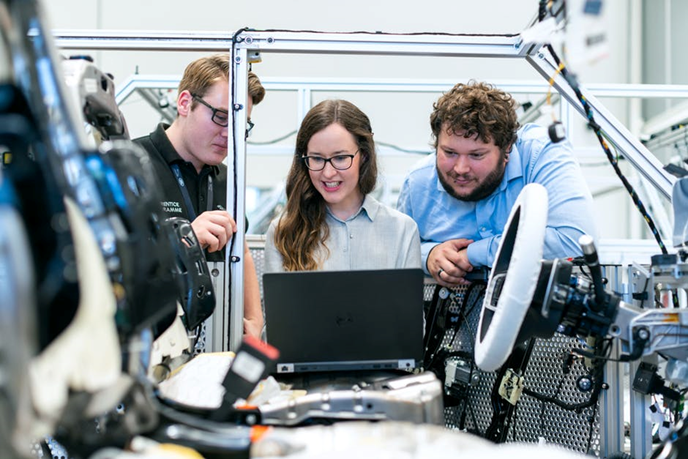It’s no secret that engineers make good money. On average, those in the engineering field make $60,000-$75,000 starting out.
But it’s not always about the money, and there are all sorts of focuses you can pursue with engineering. For those with a fondness for cars, you might look at becoming an automotive engineer. If that’s the case, continue reading for all the steps to pursue this career.
What Does an Automotive Engineer Do?
Automotive engineers are the people that design the systems of a vehicle. They have to consider cost and quality depending on the requirements of the job. They’ll also have to pinpoint any issues that could arise from designs to make sure the car is safe.
If you’ve found yourself around cars your whole life, this might be a career for you. And while the requirements may be tedious, it’s not too difficult to enter the field with the right qualifications.
Determine If You Want To Pursue Automotive Engineering
While engineering careers typically pay well, it’s never wise to choose a job solely for the financial benefits. Not everyone fits the bill to become a design engineer, so you’ll want to make sure this is the right job for you.
Typically, automotive engineers have a unique mixture of creativity and mathematical skills. It also helps to have experience with computer systems. If this sound like you, continue reading.
Pursue the Right Education
While these skills form the base of becoming an automotive engineer, it is necessary to receive the proper training and certification to pursue the career. In most cases, you’ll need a Bachelor’s degree in mechanical engineering for any company to consider hiring you. You can bolster your chances with engineering firms with additional education, such as safety training (continue here for more on that).
Apply for Co-ops or Internships
In addition to the required education, it is critical to have some amount of experience before starting your career. The best time to start gaining experience is, well, immediately.
Many engineering firms take on engineering students for co-ops or internships while they’re still in school. This gives the student the necessary experience before they choose a company to work with, but also helps introduce both the firm and the student to potential employment opportunities.
Apply For Automotive Engineering Companies
Once you’ve graduated and collected your work experience, you can start to apply for your dream job: an automotive engineer.
With the network you’ve established, you can either start working for the company that you interned with or branch out to different fields. Remember, you should pursue work that fulfills you beyond the money, so working for a company that you like is paramount.
More Engineering Jobs
We hope this concise breakdown of the steps to becoming an automotive engineer was helpful.
While this career path is certainly fulfilling, there are other jobs in the industry that might suit you just as well. For more engineering job opportunities, check out our Business section.

